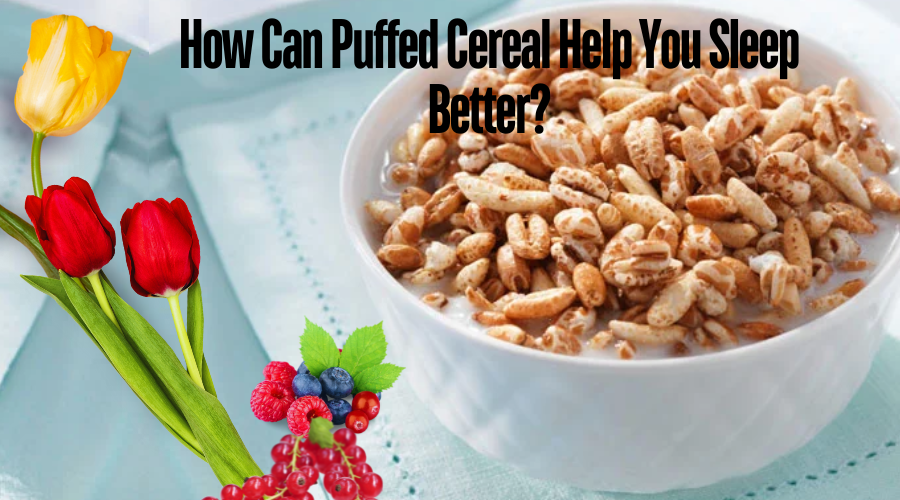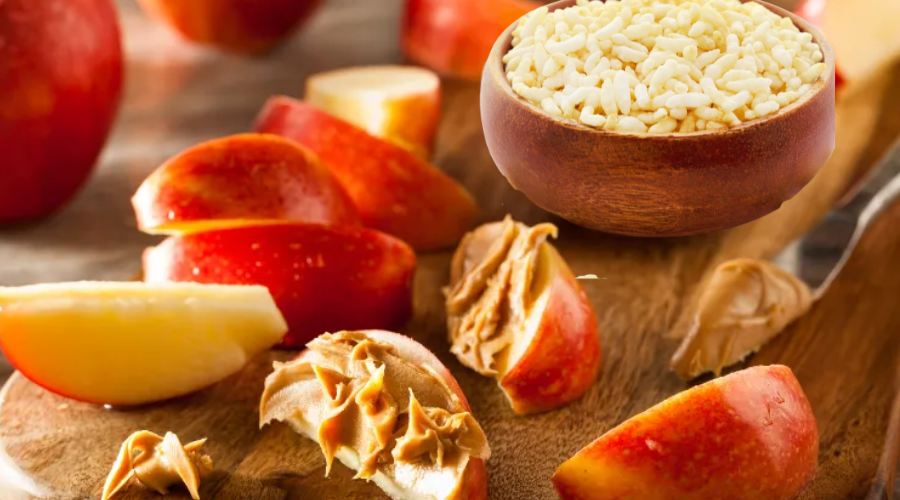
Sep 20,2024
Many people struggle to get a good night's sleep, but could the answer be in your pantry? This article explores how puffed cereal, often overlooked as a bedtime snack, may improve sleep quality.
It's common knowledge that our foods can impact our overall health, but did you know they can also influence our sleep patterns? Certain foods, including puffed cereal, may help promote relaxation and improve sleep. Let's delve into how.
Our bodies are complex systems, and the foods we consume significantly regulate various bodily functions, including sleep. One key factor is the type of nutrients we consume. Carbohydrates, in particular, can be beneficial for promoting sleep.
When we consume carbohydrates, our bodies break them down into glucose, which is used for energy. This process also triggers Serotonin( it is a neurotransmitter, a chemical messenger that is resposible to regulate mood, appetite, sleep, and memory). Serotonin is a regulates melatonin, a hormone that regulates our sleep-wake cycle. Therefore, consuming a balanced, light evening snack with carbohydrates promotes restful sleep.
Puffed cereal is a low-calorie, light snack option that can be a great choice before bed. The carbohydrates in puffed cereal make the body and mind relaxed, so it would be easier to fall asleep. Additionally, puffed cereal's simple, whole-grain composition can help stabilize blood sugar levels, preventing sudden spikes or drops that can disrupt sleep.
Some puffed cereals, such as magnesium and B vitamins, contain key nutrients that can support relaxation. Magnesium is a crucial mineral reponsible for many of our bodily functions, including muscle relaxation and stress reduction. B vitamins are essential for energy production and help regulate mood and stress levels.
To enhance the sleep-promoting effects of puffed cereal, consider pairing it with other sleep-enhancing foods like bananas (rich in potassium) or warm milk (which contains tryptophan, another amino acid involved in serotonin production).
Here are a few easy-to-prepare, soothing puffed cereal snack ideas:
Puffed cereal with warm almond milk and honey: This comforting combination provides a gentle dose of carbohydrates and sweetness to help you unwind.
Puffed cereal mixed with yogurt and chia seeds: This balanced snack offers protein, fiber, and healthy fats to support a restful night's sleep.
A calming puffed cereal and chamomile tea combo: Chamomile tea popular for its soothing effects and for the promotion of relaxation before bed.
While puffed cereal can be a helpful addition to your bedtime routine, it's important to remember that no single food can guarantee better sleep. Diet is just a coner stone of a holistic approach to improving sleep quality.
To enhance the benefits of puffed cereal, consider incorporating other sleep-promoting habits such as:
Dimming the lights and avoiding screens before bed
Practicing for the relaxation techniques such as deep breathing or meditation
In conclusion, puffed cereal can be a delicious and nutritious way to support better sleep. By incorporating puffed cereal into your bedtime routine with the combinition of other healthy habits, you may find that you're able to enjoy more restful and rejuvenating sleep.

While puffed cereal can be a beneficial addition to your bedtime routine, here are some additional tips to help you optimize your sleep:
Evening snack: Aim to consume your puffed cereal about 1-2 hours before bedtime to allow for digestion.
Avoid late-night eating: Eating a heavy meal too close to bedtime can disrupt sleep.
Magnesium-rich foods: Consider pairing your puffed cereal with other magnesium-rich foods like dark chocolate, almonds, or spinach.
Tryptophan-rich foods: Incorporate foods containing tryptophan, such as turkey, eggs, and cheese, to help promote relaxation and sleep.
Establish a sleep schedule: Go to bed and wake up at the same time each day, follow it on your weekends, too.
Limit screen time: The blue light commmonly emits from many electronic devices has dertimental effect on your sleep. Better to avoid screens for at least an hour before bed.
Create a calming sleep environment: Ensure your bedroom is dark, quiet, and cool. Use comfortable bedding and pillows.
Manage Stress and Anxiety
Practice some techniques for relaxation: Techniques such as deep breathing, laughter therapy meditation, or yoga reduce stress and anxiety, promoting better sleep.
Limit caffeine and alcohol: These substances can interfere with sleep. Avoid consuming them close to bedtime.
Address underlying health conditions: If you're experiencing persistent sleep problems, means its time to see a doctor to find out any underlying medical conditions.
By incorporating puffed cereal into your bedtime routine and following these additional tips, you would improve the quality of your sleep quality and enjoy the benefits of a well-rested night.
Can I eat puffed cereal too close to bedtime?
It's generally recommended to avoid eating a heavy meal too close to bedtime, as it can disrupt sleep. However, a light snack like puffed cereal should be fine.
What type of puffed cereal is best for sleep?
Whole-grain puffed cereals, such as those made from oats or brown rice, are generally considered healthier options and may provide more nutrients that support relaxation.
Can puffed cereal help with insomnia?
While puffed cereal may not cure insomnia, it may act as a helpful tool for improving sleep quality when combined with other healthy habits. If you're struggling with chronic insomnia, it's important to consult with a healthcare professional.